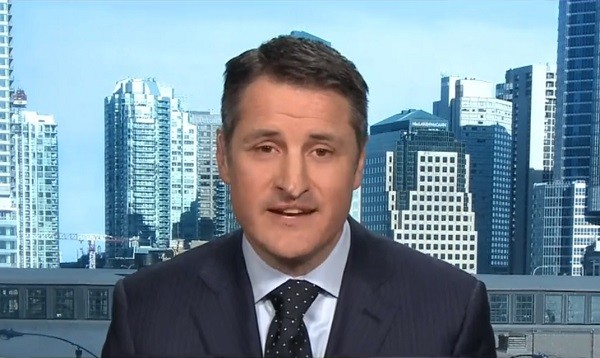

Shares of cannabis company Tilray (Tilray Stock Quote, Chart Nasdaq:TLRY) dropped lower in trading on Wednesday as investors reacted to the company’s third-quarter earnings report, the second delivered since it went public this summer. But Brendan Kennedy, CEO of the Nanaimo, BC-based Tilray, says he’s positive not only about his company’s progress but about the shifting attitudes worldwide when it comes to cannabis.
Tilray shares are down over seven per cent in late-day trading just after the company reported its Q3, 2018 financials which included a net loss of $18.7 million or $0.20 cents per share, a big jump from last year’s third quarter loss of $1.8 million or $0.02 cents per share, while analysts had expected the number to come in at a loss of $12.7 million. (All figures in US dollars unless noted otherwise.)
“We’re pleased with our continued business momentum. Our revenue grew by 86 per cent to $10 million for the quarter,” said Kennedy on Wednesday in conversation with CNBC. “All of that revenue for this quarter is medical and we look forward to next quarter when we start to see some Canadian rec use revenue in that earnings report.”
“Our product is now available in 12 countries on five continents and just after the quarter we raised an additional $475 million to invest in increasing capacity around the world,” he says.
Tilray stock under pressure
With a market capitalization at $10.5 billion, Tilray’s stock grew over 320 percent since its debut in July, although the stock is now down 23 per cent over the past month.
Another industry giant, Canopy Growth Corp also saw its share price take a hit in reaction to a just-released quarterly report. In Canopy’s case, the licensed producer posted a loss of C$330.6 million for its quarter ended September 30, along with revenue of C$23.3 million, a 33 per cent year-over-year increase that nonetheless came in below expectations of C$59.1 million.
Kennedy stressed that with Canada’s recreational market just opening and the US cannabis environment continually evolving, the growth potential remains huge.
“The biggest challenge [in Canada] is that there’s just so much demand, which is a good thing,” he says. “We’ve seen it before in places like Washington and Colorado, Nevada and California, where it definitely takes six to 12 months for supply and demand to reach some sort of equilibrium. We’re increasing our capacity as fast as we can, not only in Canada but with our facility in Portugal which will come online just at the end of the year.”
Kennedy says that not only were results from the US midterm elections promising on the cannabis front, with Michigan voting to legalize recreational use and both Utah and Missouri voting in favour of medical marijuana, but that the growing acceptance of cannabis is now a worldwide phenomenon.
“I’m hugely optimistic, not only with what’s been happening in the US but what’s happening around the world. The United Kingdom went from not talking about medical cannabis legalization to legalizing [medical cannabis] in a very short period, about eight weeks. Two weeks ago, the Supreme Court in Mexico essentially legalized cannabis for adult use,” Kennedy says. “In country after country around the world, we are seeing a continued march toward legalization of medical cannabis and adult use.”
Leave a Reply
You must be logged in to post a comment.






 Share
Share Tweet
Tweet Share
Share




Comment